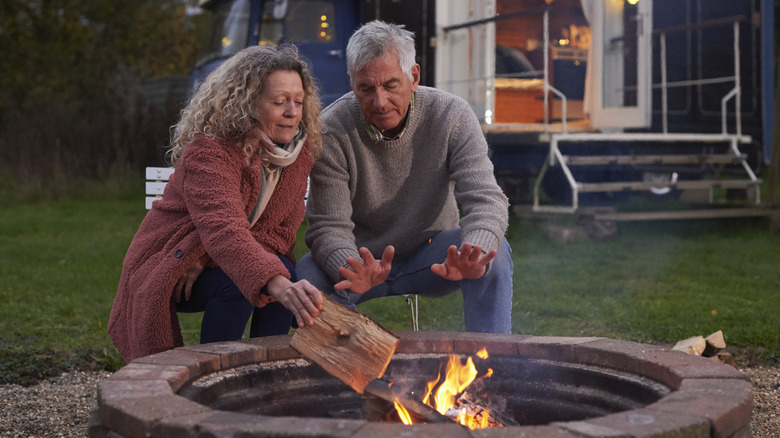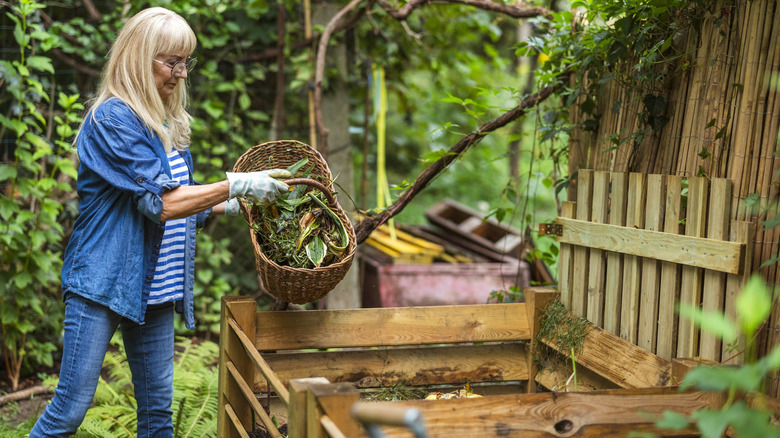Why You Should Think Twice Before Burning Pulled Weeds In The Fire Pit
It is part of human nature to be attracted to fire's flame. According to a study by the National Library of Medicine, fire does not just warm us up, it can also have a relaxing effect, which could result in reduced stress and lower blood pressure. It is no surprise then that many people search for fire pit ideas to help turn an outdoor living space into the perfect oasis. After all, is there a better way of making s'mores?
A backyard fire pit would also seem to be a convenient place to burn the weeds you have pulled, especially since you need to be careful about adding common weeds to your compost. A few minutes exposed to the heat, and the weeds should be nothing more than ash. It is hard to think any harm could come of it, but there are a couple of reasons why you should think twice before burning pulled weeds in your fire pit.
Concerns over air pollution mean burning yard waste is actually illegal in many areas, so you will want to check local ordinances to avoid a potential fine. Even where it is allowed, certain weeds can release compounds that are irritating and could even be toxic. The situation can be made worse because you tend to stay close to the fire pit and are more likely to breathe in the fumes.
Which weeds should never be burned, and what to do instead
Sumac is one weed that should not be burned because it releases oils that can be irritating to your skin and your respiratory system. Poison oak and poison ivy release chemicals that are toxic. Oleander fumes are hazardous, and allergy sufferers in particular can have bad reactions. These are weeds that are known to cause problems. If non-toxic weeds have been sprayed with insecticide or weed killer, there could be further complications if burned. Unless you can identify all the weeds you have pulled, and you live in a zone where it is permitted, it may not be worth the risk of burning pulled weeds in your fire pit.
So, what can you do instead? It is safe to compost many weeds if they are not diseased or have gone to seed. It helps to be able to identify common garden weeds so you know how to deal with them. However, if you have any doubts, the safest course of action is to throw the weeds in the trash. Before you do that, check to see if there is a local service that collects green waste from your home. Each provider has their own requirements, but it will mean your weeds can be of further use and will not take up more space in the landfill.

